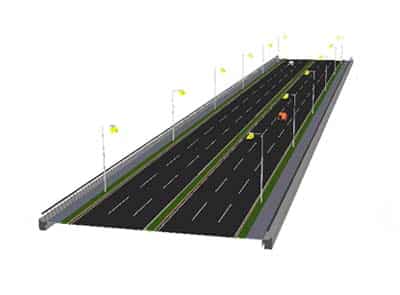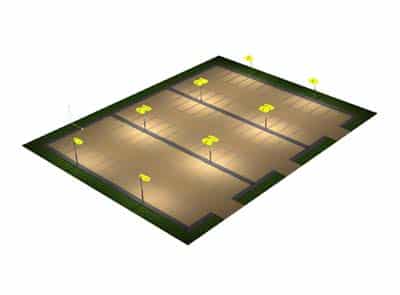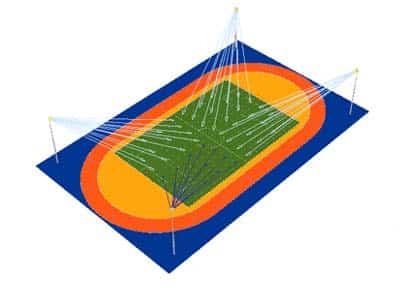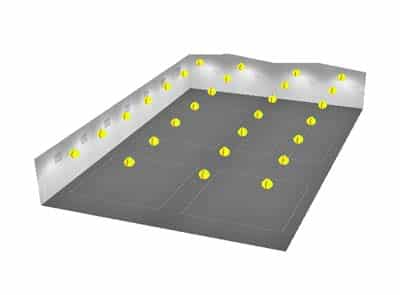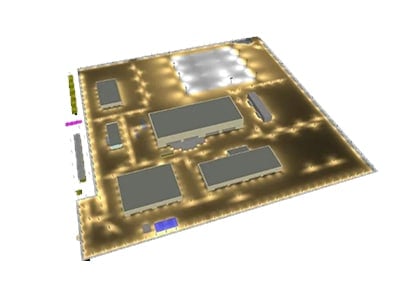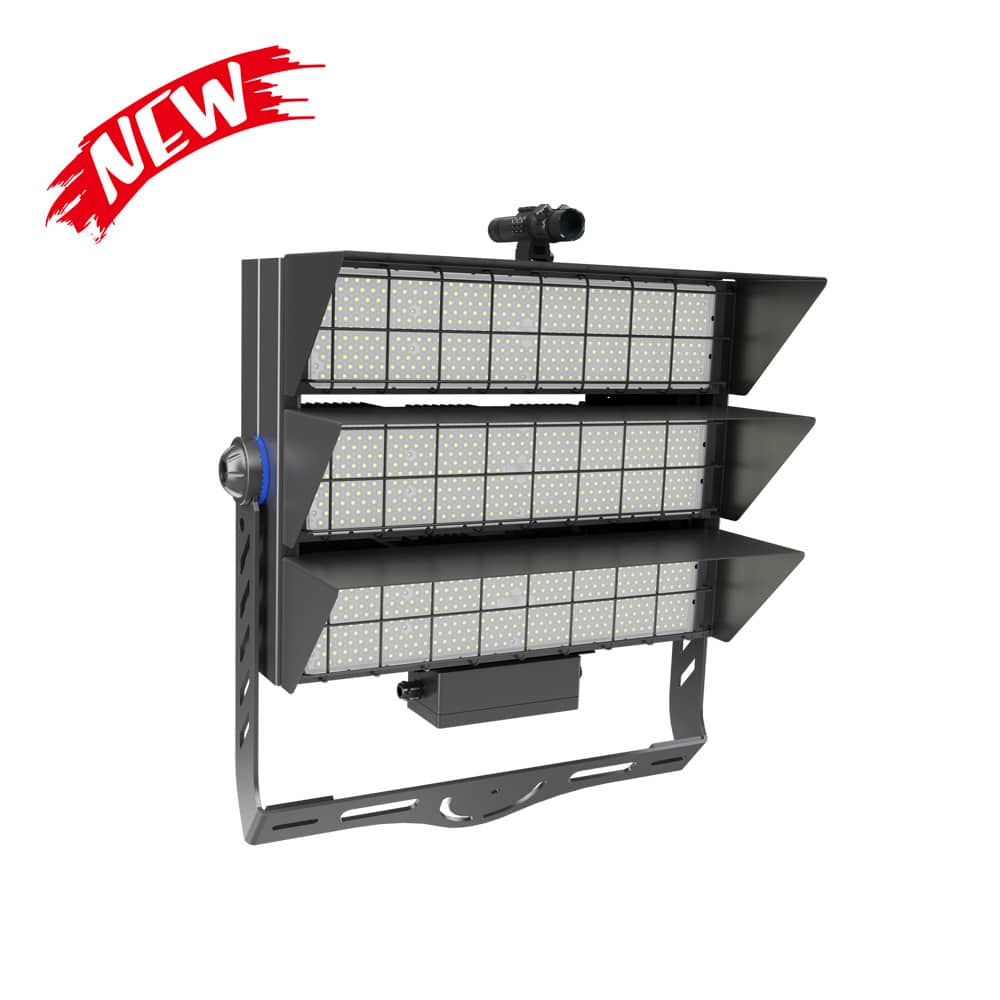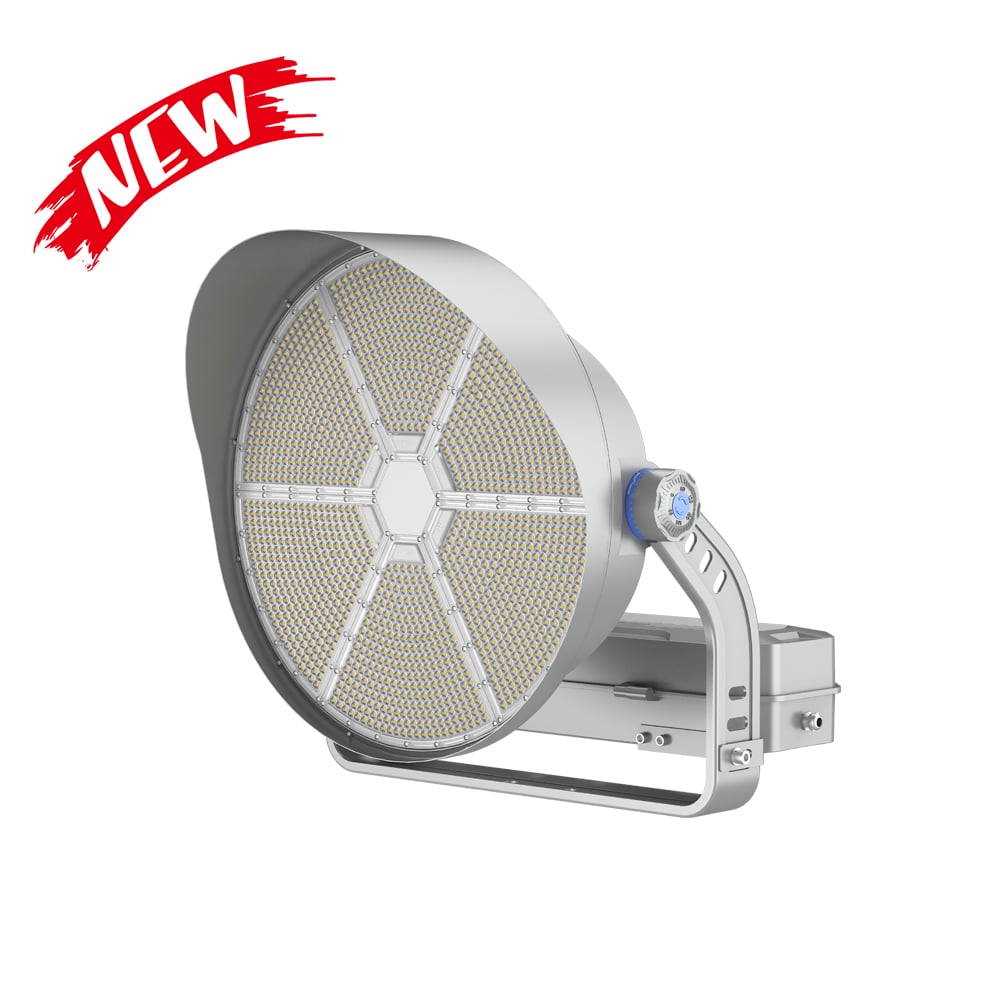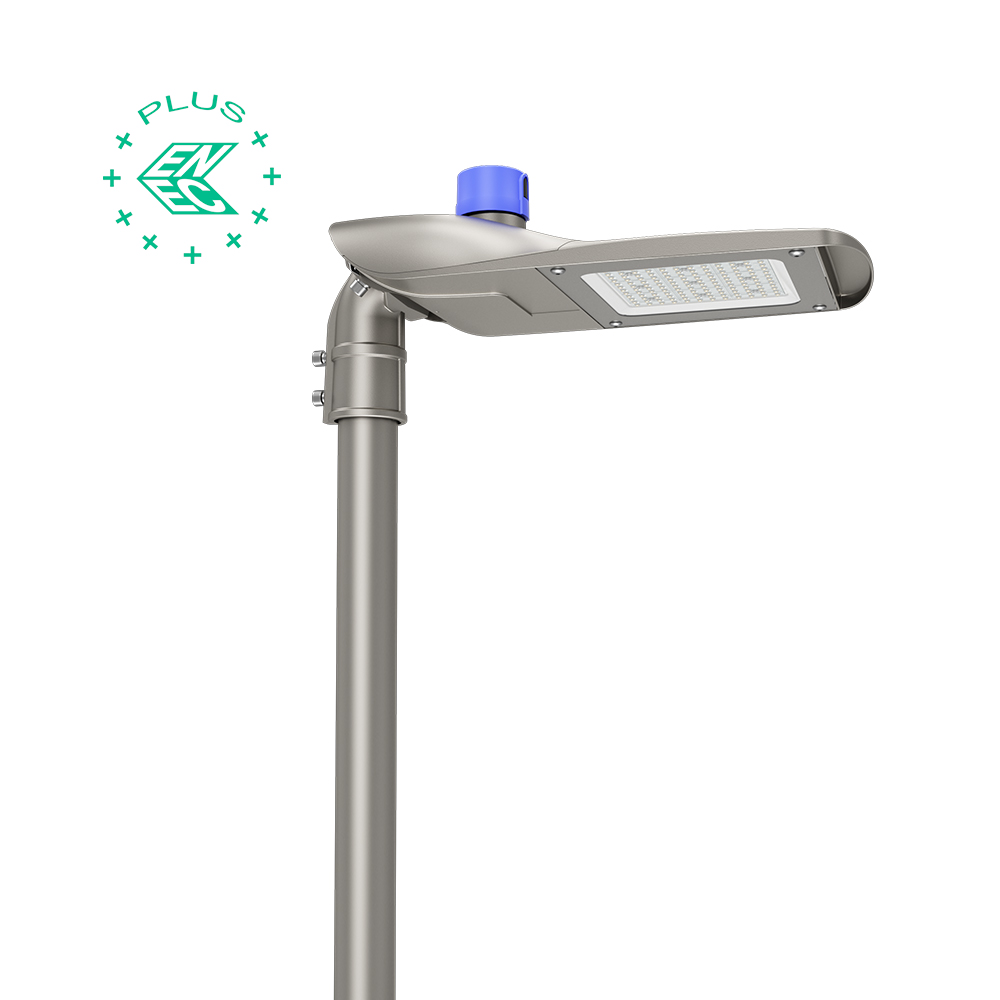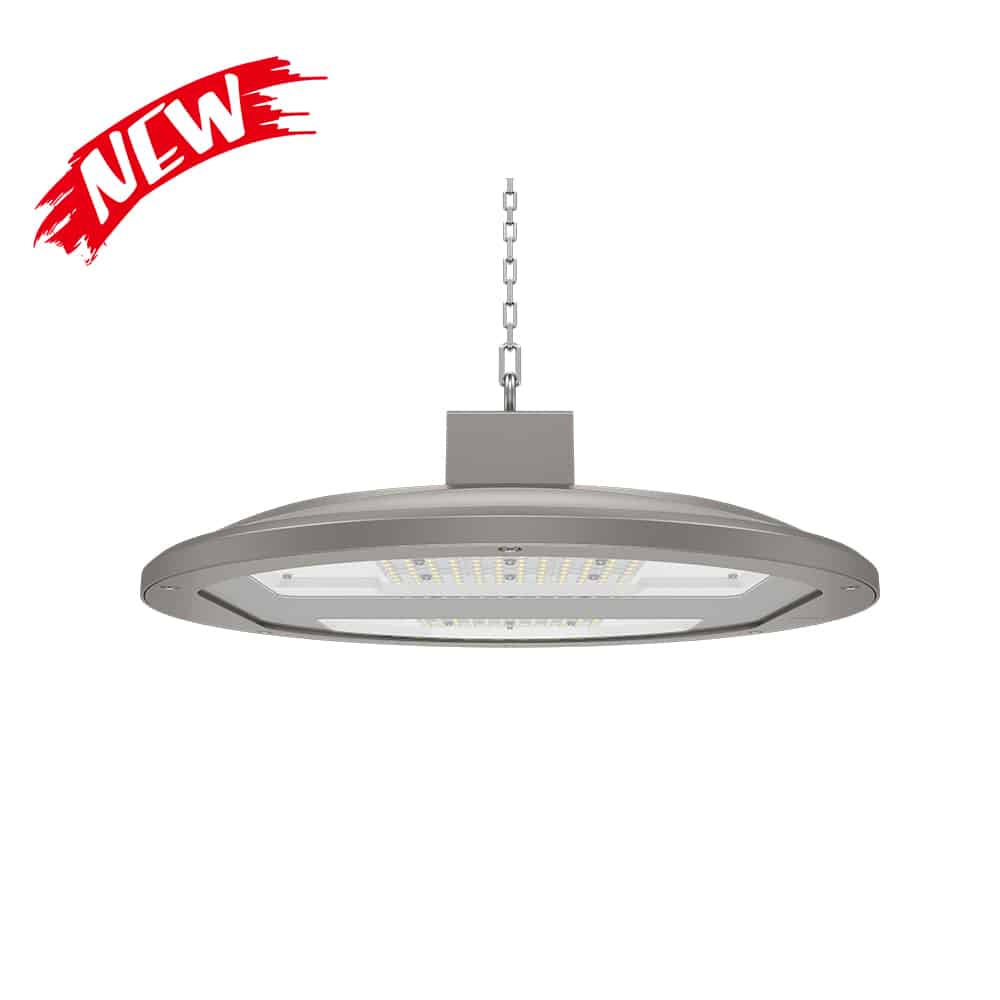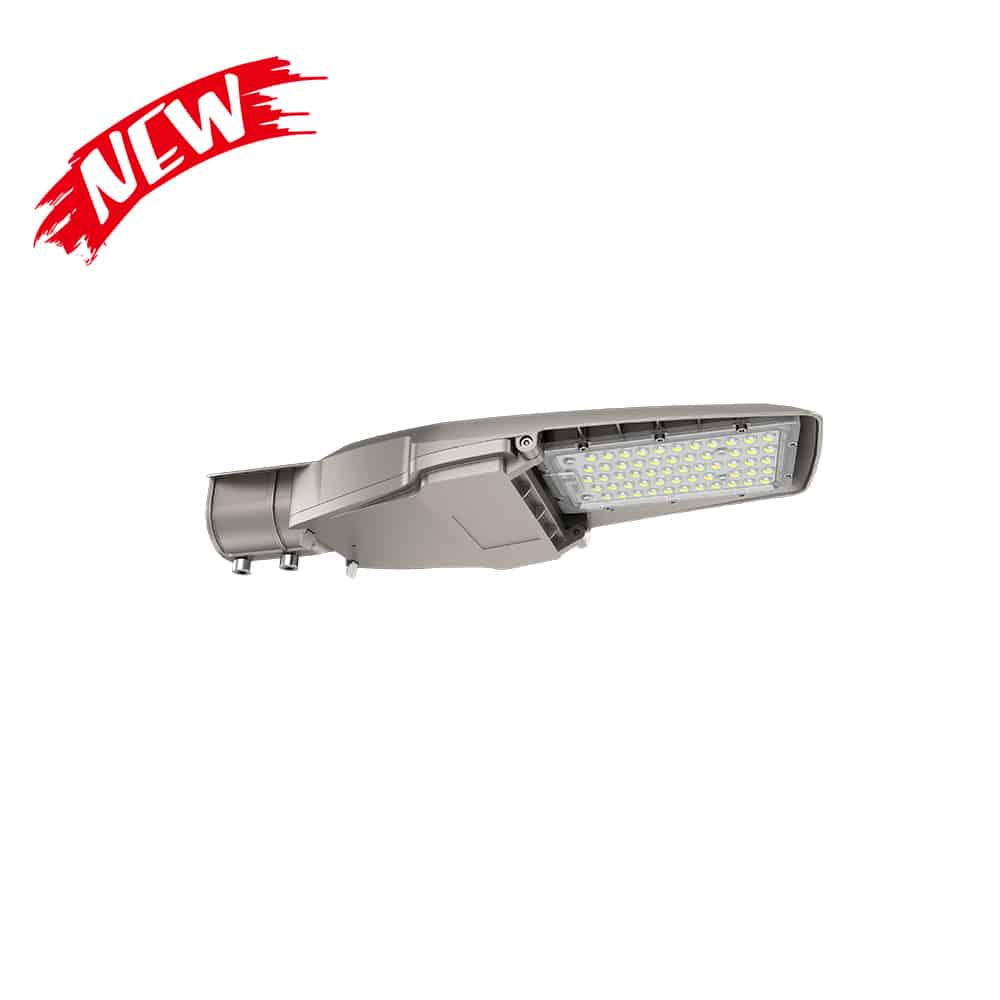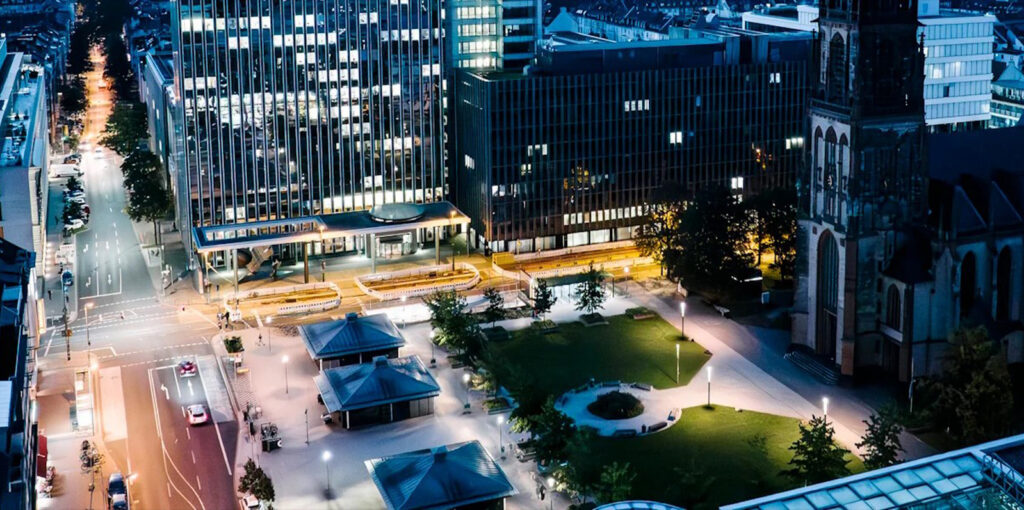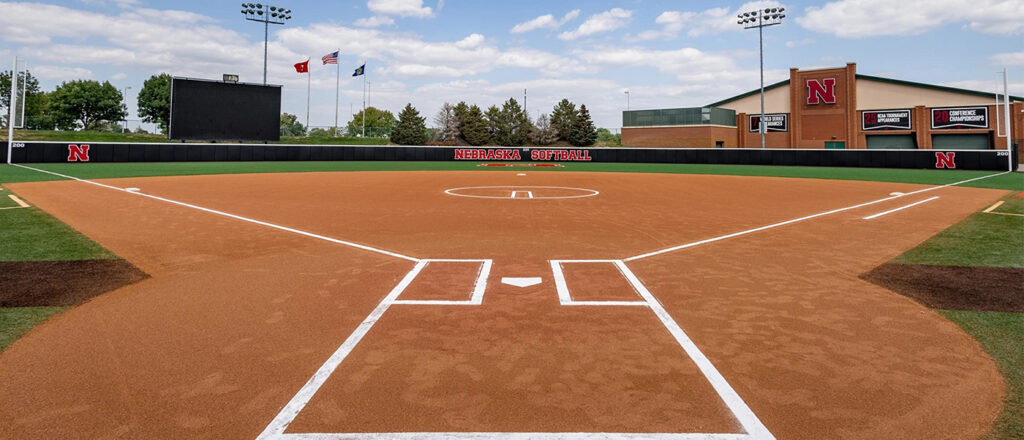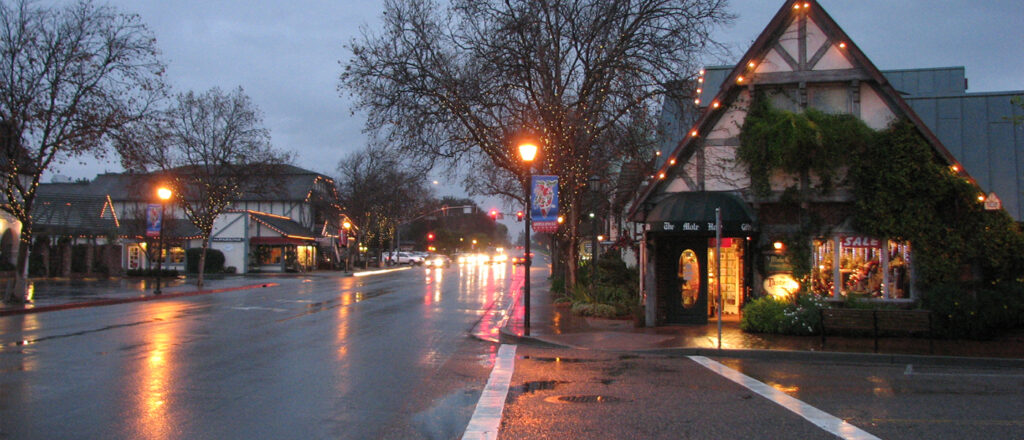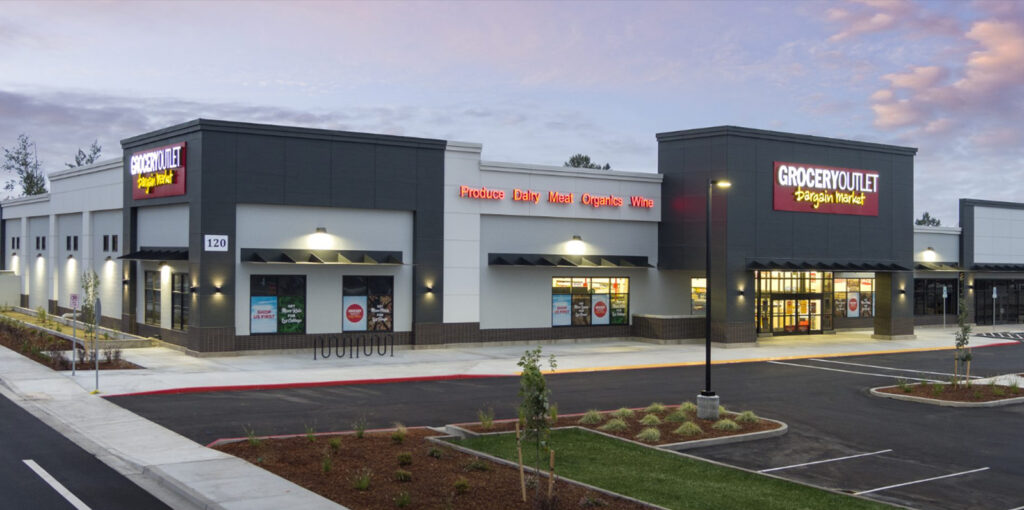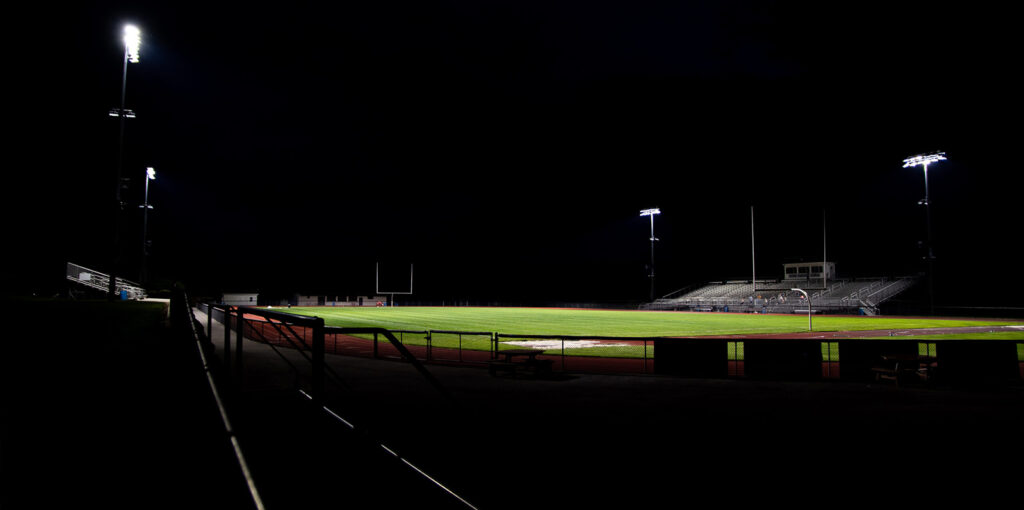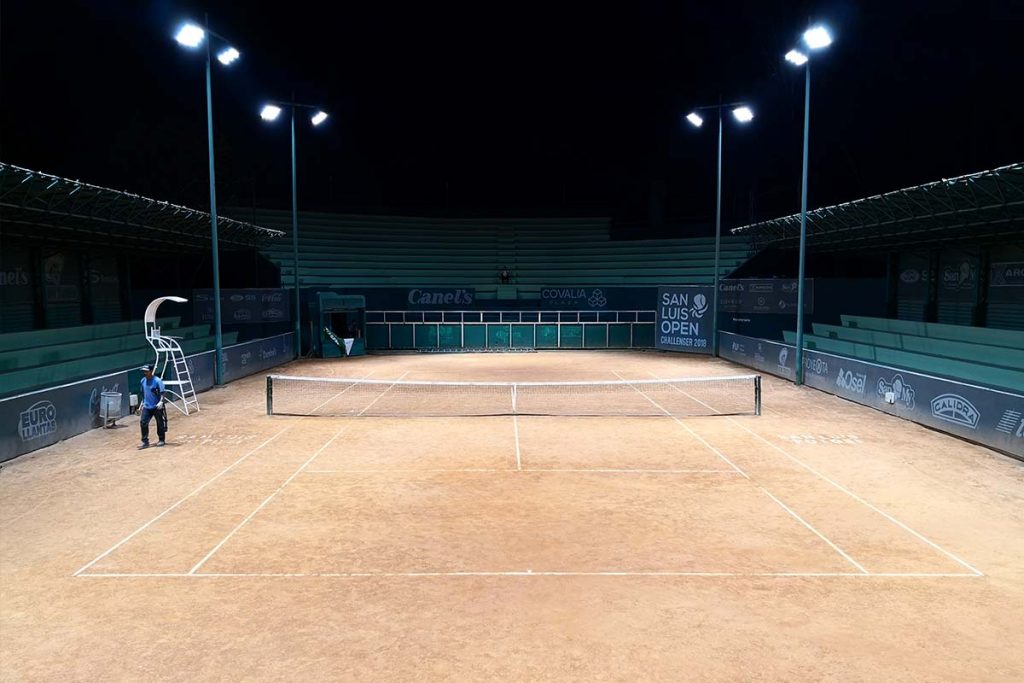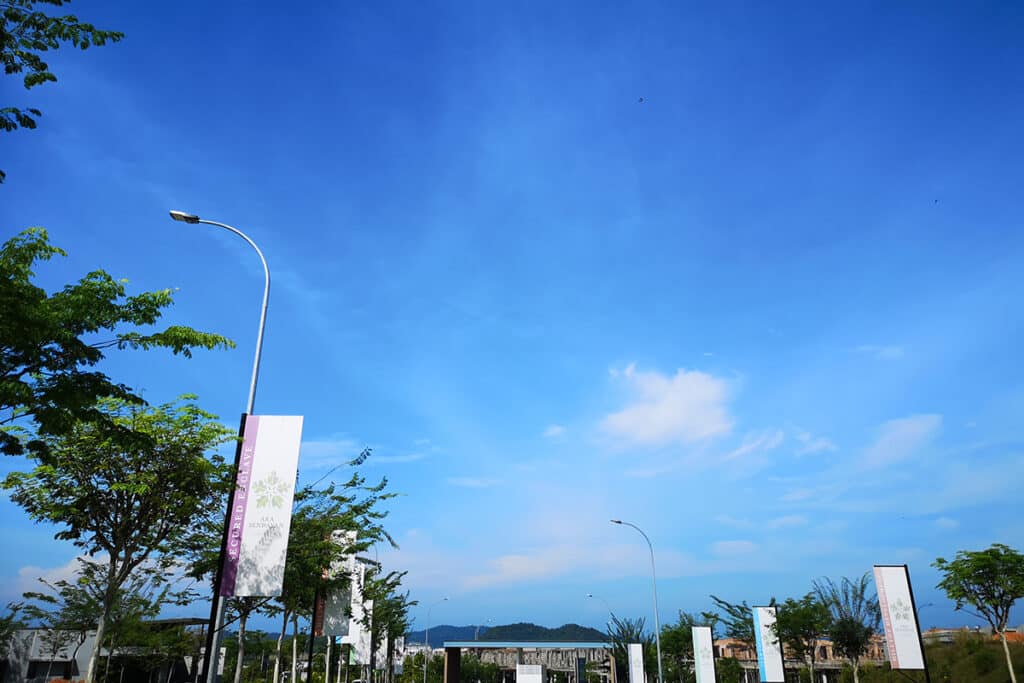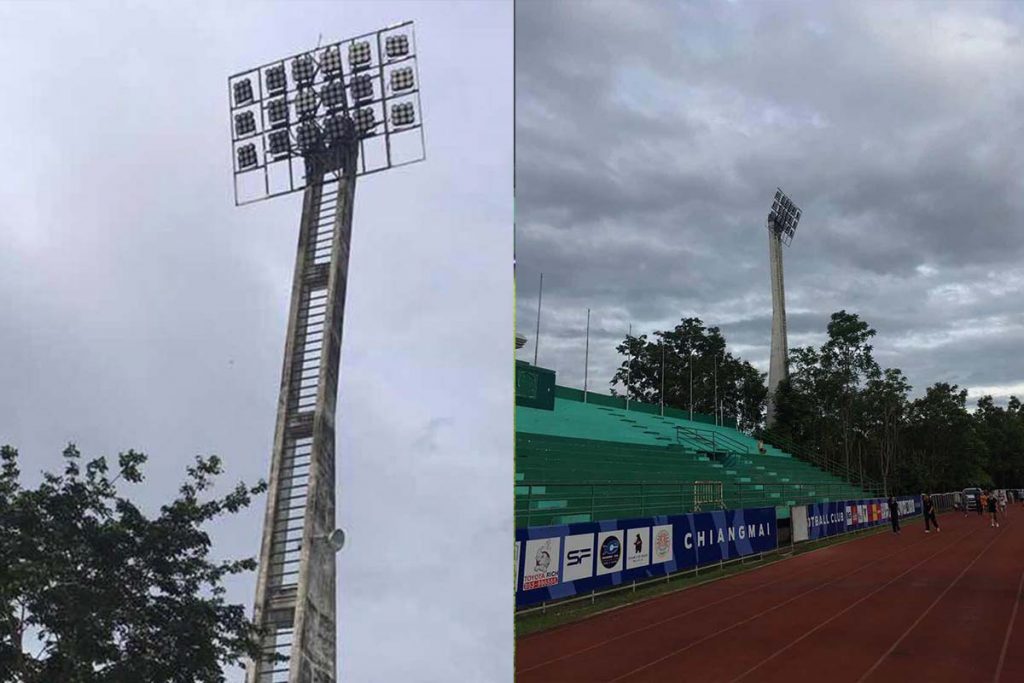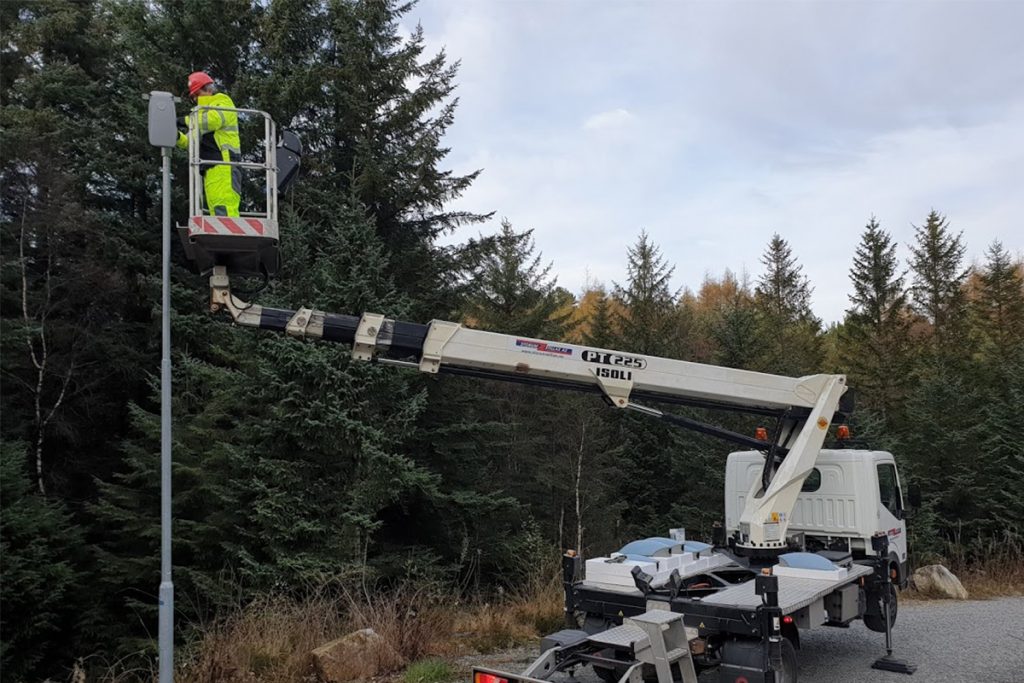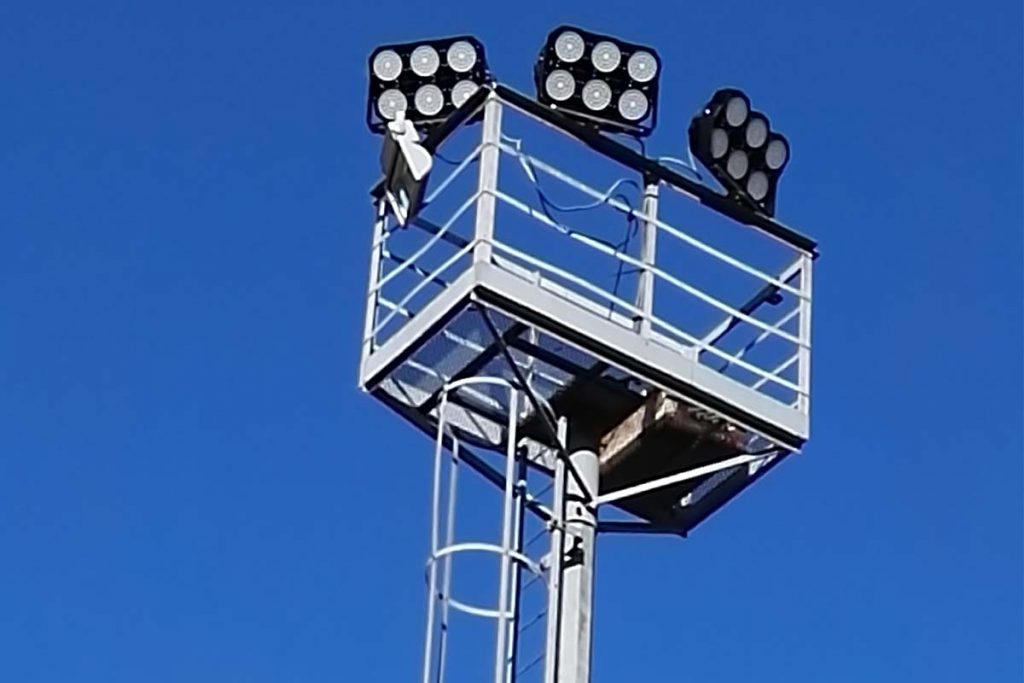Light trespass from sports lighting and street lighting
Light trespass from sports lighting and street lighting
Introduction
Light pollution is a new source of environmental pollution after waste gas, waste water, waste residue and noise pollution, and is increasingly becoming an important environmental issue affecting modern life. The so-called light pollution refers to the phenomenon of excessive or improper use of artificial light sources, which in turn interferes with the natural environment, the health of animals and plants, and human activities. Common types of light pollution (What’s light pollution and how to reduce it?) include glare, sky glow and light trespass. As a form of light pollution, light trespass refers to the overflow of light into areas that should not be illuminated. Taking life scenes as an example, improper setting of street lights on both sides of the road or unreasonable selection of lenses will cause light to directly shine into residential buildings, which will not only cause visual interference to residents, but also cause energy waste; if the stadium lighting lacks effective control, strong light may directly shine into the audience seats or off-site areas, which is also trespass. At a time when urbanization is accelerating, such lighting problems are appearing in a concentrated manner, triggering people’s thinking about the rational use of light. This article will explore several forms of light trespass and how to avoid these situations. These measures include reasonable lens selection, light trespass shielding and lighting design.
What’s light trespass?
Light trespass is often used interchangeably with light intrusion or light violation. Light trespass is a type of light pollution. It means any light emitted by an outdoor luminaire that shines directly beyond the property on which the luminaire is installed, or unwanted spill light that affects areas outside the intended illumination zone. When spill light is projected to unwanted places, light trespass occurs. ZGSM’s outdoor lamps are mainly divided into stadium lights and street lights (Check to find ZGSM street lighting solutions). The unreasonable application of these lamps will cause spill light to be projected to unwanted places. It will have a negative impact on people’s lives and health, such as causing poor sleep quality, eye discomfort, and irritability. It may also interfere with the living habits and ecological environment of animals and plants, such as affecting bird migration, insect reproduction, and disrupting the biological clock rhythm of plants. Many places have strict regulations prohibiting light from intruding into windows in residential areas (including parks and nature reserves, etc.). This is because many residents in cities and towns have experienced the frustration of light intrusion in their bedrooms and living rooms, which has led to more attention to the standards of trespass.

Standards about light trespass
We checked relevant blogs, but did not find too many relevant standards. DarkSky’s five principles for responsible outdoor lighting includes useful, targeted, low level, controlled, and warm-colored lighting. Targeted here means that the lighting must be within a specified area to limit light trespass. For sports field light, DarkSky (More about DarkSky) requires that at least 85% of the total lumens generated by sports lighting fixtures that illuminate the competition venue must fall within the target area. For example, taking football field lighting as an example, its calculation shall include the total number of lumens falling within this zone (x), the total lumens generated by the luminaires (y), and the percentage (x/y) x 100 which should be equal or greater than 85%. For road lighting, ZGSM did not find any relevant standards, which may be because road lighting has SR and Rei requirements.
Examples to calculate the light trespass in outdoor lighting
In outdoor lighting, unreasonable light distribution selection and lamp placement will cause light to shine toward the sky or surrounding buildings. For example, we can use traditional light pollution measurement technology (such as photometer) to measure whether there is artificial light around and the intensity of light. Of course, we can also simulate the lighting results after outdoor lighting is set up through lighting simulation. By lighting design, we can simulate the distribution of light in the target area and surrounding objects to determine whether it will cause light pollution. If the light pollution is serious, we need to optimize it. If necessary, we also need to optimize the light distribution and structure of the lamps.
Calculating light trespass in sports lighting
Taking a football field with spectator seats as an example, we need to use 3D software to model the entire field. Then, we need to import it into the lighting simulation software. After setting up the lamps, we can analyze whether the lighting of the football field causes light pollution. According to DarkSky’s standards, a simple evaluation method is to see whether the total lumen percentage on the field reaches 85%. Taking a standard 105*68 (TA=111*72m) football field as an example, the maintenance factor (What’s maintenance factor?) is 0.9. After setting up 4 high poles and 36 pieces 1000W lamps, we get an average illumination of 521lux on the field, and the total lumen emitted by the lamps is 540000lm. Then we get the percentage of lights fall on the play area will be 85.6%, which is over than 85%. At the same time, in the 3D false color map, we can also see that there is not much excessive light on the stand roof, the spectator seats and the periphery of the field. If the lamp is not equipped with a hood, a lot of light will be directed to the ceiling and the periphery of the court, resulting in light trespass. The results also show that the percentage of lights fall on the play area will be less than 85%.
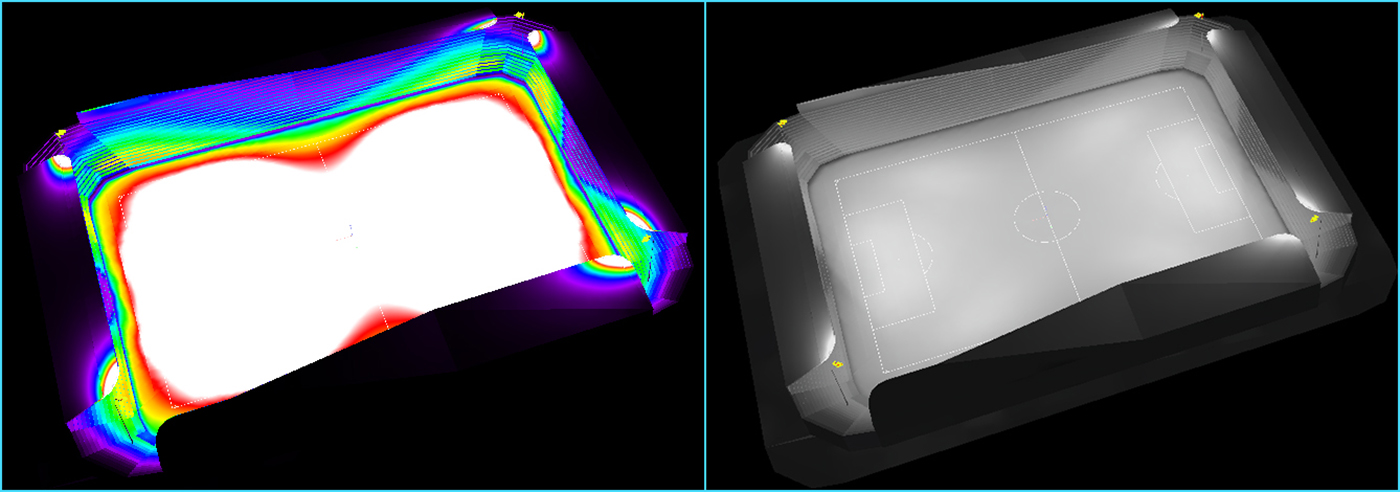
Calculating light trespass in street lighting
In road lighting, we can also calculate the light in non-illuminated areas through modeling. And it’s much simpler method. For example, now we need to simulate a 7-meter secondary road, and the luminaire arrangement (What’s luminaire arrangement in street lighting?) is side bottom. In order to calculate the proportion of light that the lamp shines outside the road, we can calculate this part of the light by inserting a calculation surface. Here we assume that the height of the lamp is 8 meters and the distance between the lamp poles is 30 meters. We insert street lamps with two types of lenses (standard one and another light distribution with less backlight), and the results are shown in the figure below. In the simulation, we can see that the illumination of the crosswalk (the additional inserted calculation surface) has dropped from the original 8.56 lux to 5.31 lux. It should be noted that the value of SR (surround ratio) has also become lower. Therefore, while ensuring that there is no trespass, the driver’s observation of both sides of the road will also be reduced due to the decrease in light in this area.
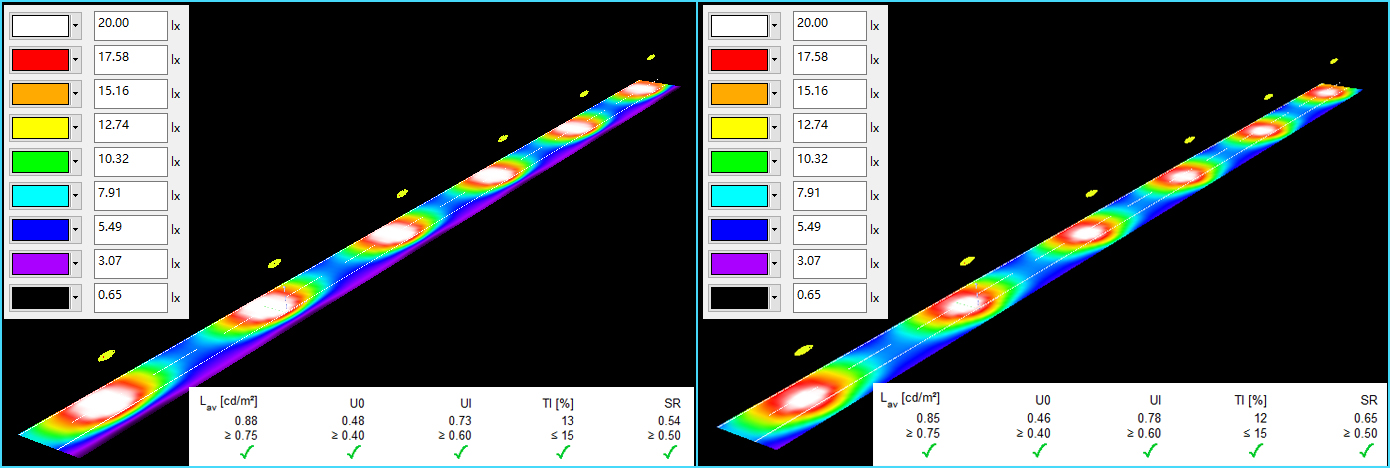
ZGSM’s efforts to reduce light trespass
Shielded lighting to reduce light trespass
According to DarkSky, using shielded lighting is an effective way to reduce light pollution. It points out that light pollution can be greatly reduced by preventing light from spilling upward or to the side. All ZGSM lamps are shielded, but when the installation angle changes, we need to pay attention to light spill. This is because when the installation angle changes, the light-emitting surface also changes. For example, when the boom inclination of the street lamp is 15°, there will be light shining directly into the sky; similarly, in order to achieve good uniformity of the stadium lights, we need to constantly adjust the aiming point. When the angle is too large, the light of the stadium lights will also shine directly into the sky. ZGSM therefore believes that we need to do three things to avoid light trespass. First, ensure that shielded lighting is used, second, the installation angle is as horizontal as possible (that is, the light-emitting surface is level with the ground), and third, add cover when necessary to reduce the light shining upward. For example, a customer pointed out that ZGSM’s Zoom series floodlights (Find more details about ZGSM Zoom series flood light) have light overflow, so we added baffles to prevent light overflow, although the light emission angle of these lights is less than 90 degrees; for another example, when ZGSM designs stadium lights, it will be equipped with an optional sports light shield (hood or cover) to reduce light overflow when the aiming point is too large. ( Why cares about the aim of sports flood lights? )
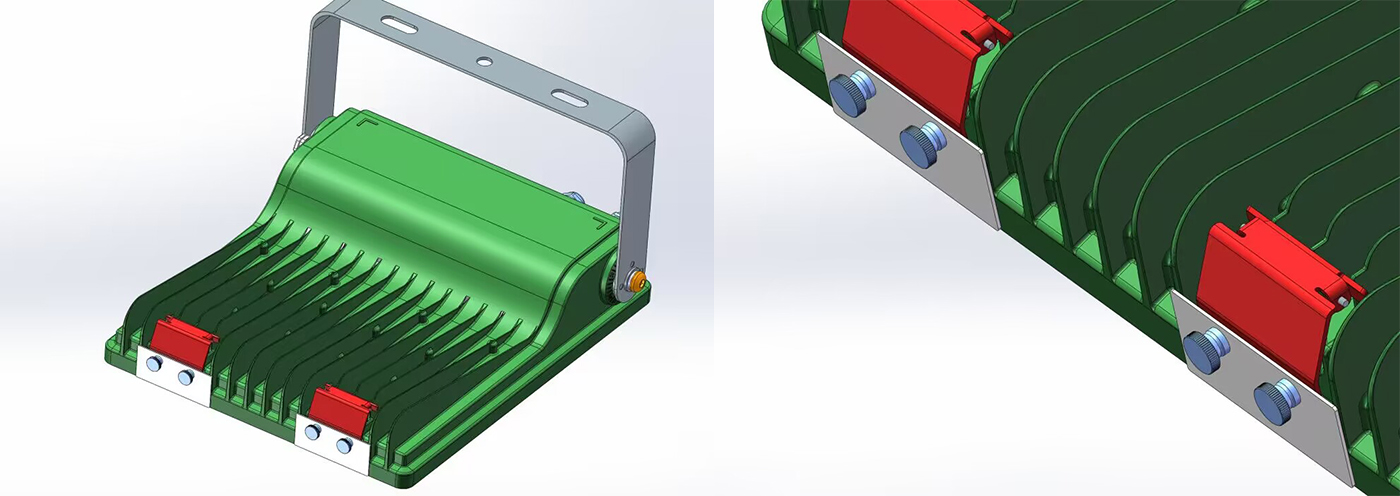
Target lighting (block light in a specific direction) to reduce light trespass
In urban road lighting, street lamps are often distributed around the block. These lamps will more or less shine light into nearby houses. Fortunately, many lighting manufacturers have paid attention to this phenomenon and have begun to find corresponding solutions. For example, Philips Lighting, its products can be equipped with front side shield, house side shield, right side shield, left side shield. From their names, we can know that they can block the light from street lamps in a specific direction, thereby reducing the impact on the non-lit area in this direction. Fortunately, ZGSM also has corresponding solutions, whether it is floodlights or street lights. For example, when street lights are placed on the internal roads of residential areas, we can add a backlight shield (house side shield) when the pole is near the house. This solution can effectively block light from shining on the house side of road, thereby reducing the impact on the houses in that direction. The same solution is also applicable to floodlights. The following is a physical picture of street lights and floodlights with less backlight solutions. If you want to know more, please contact ZGSM to get a quote for this solution.
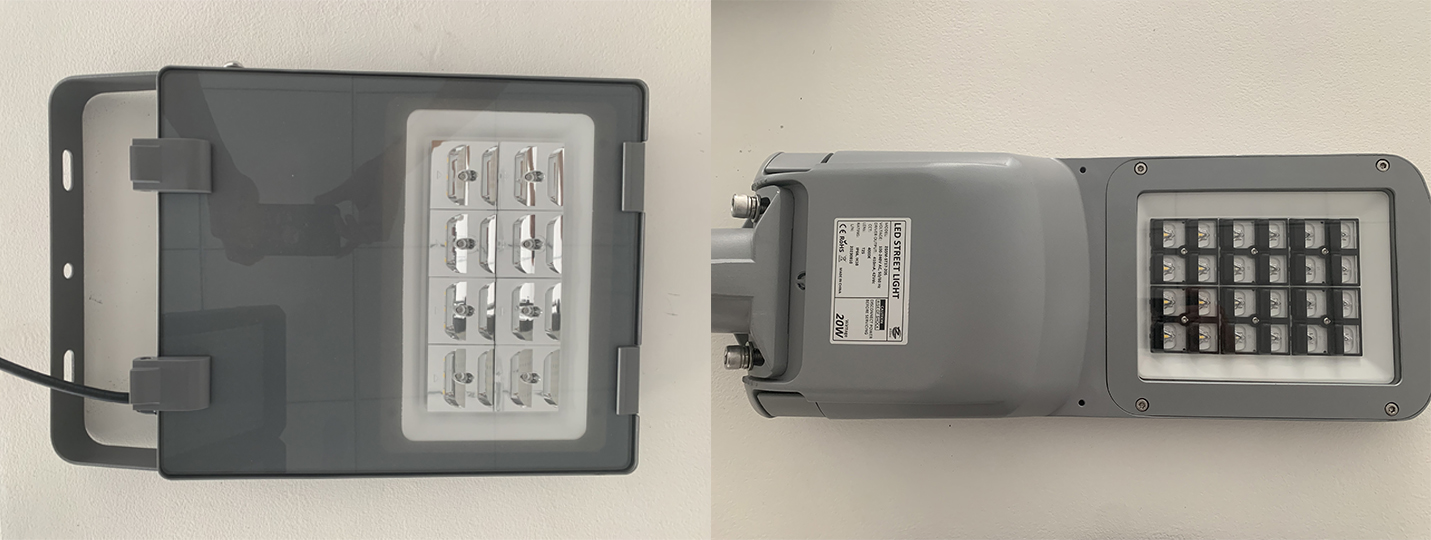
With reasonable lighting distribution to reduce light trespass
The choice of light distribution is also helpful in reducing trespass. For example, if the lane width is 7 meters, the street lamp with type II light distribution can concentrate the light on the road, while the street lamp with type III light distribution will irradiate part of the light to the outside of the road. But when the road width becomes 10.5 meters, the situation changes. At this time, type III lateral light distribution (What’s lateral light distribution?) is much more suitable since it throws light more forward. On the contrary, type II light distribution cannot irradiate light to the third lane, resulting in that the illumination and uniformity cannot meet the corresponding lighting requirements. In stadium lighting, the choice of light distribution is also important. For example, for illuminating a large stadium, narrow beam angle is much more suitable, or lighting fixtures on higher pole with narrow beam angle is also suitable for them to concentrate light inside the playground. To minimize the trespass and glare, using asymmetrical light distribution is also adopted by manufacturer. For more details, please contact ZGSM to get more to know how to reduce upward lighting and how to reduce glare in sports lighting.
Make lighting design to reduce light trespass
Now that we know that these hard measures can reduce light intrusion, it is equally important to choose the right lamps and how to install them in practice to reduce trespass. With the help of lighting simulation software such as DIALux and Agi32 (More about Agi32), lighting designers can establish lighting simulation areas, set up 3D models if necessary, accurately analyze the light distribution effects of different light distributions, and preliminarily set these lamps based on experience to obtain lighting simulation results. Next, we can optimize the light distribution selection, installation parameters (height, inclination, spacing) and aiming angles (field lights and area lighting) of the lamps to concentrate as much light as possible in the target area, thereby further reducing the occurrence of trespass. For example, road lighting can choose the right light distribution based on the height of the lamp pole, the length of the cantilever and the width of the road to effectively constrain the light to the roadway, rather than the green belts and houses on both sides. Large stadiums can use lamps with narrow and asymmetric beams, combined with precise aiming point design to avoid light irradiating the stands or outside the field. If these still cannot solve the problem, we can further optimize the lighting design by installing light shields (street lights) and light shields (field lights). ZGSM believes that simulation-based lighting design is a proven solution that is very simple and feasible in solving the problem of light intrusion. Below is the different light design solution from ZGSM, please click to find more details.
Summary
Light trespass is one of the main manifestations of light pollution, and is increasingly attracting the attention of lighting designers and people affected by light trespass. This article mainly explains what light trespass is and the relevant standards. At the same time, we also saw how to reduce the occurrence of light trespass in road lighting and sports lighting (ZGSM sports lighting solutions). As a professional outdoor lighting solution provider, ZGSM also has its own understanding of reducing light trespass. These measures include adopting shielded lighting fixtures, optimizing lamp light distribution solutions, selecting directional shading accessories, and optimizing lighting simulation solutions. Through these methods, we can effectively control light overflow and reduce the occurrence of light trespass while ensuring the lighting effect. In addition to light trespass, unreasonable lighting levels, excessively high CCT, etc. can also cause light pollution. If you need to know more about pollution prevention and control solutions of light trespass, please feel free to contact us.
Related Products
Related Blogs
Related Cases
People also ask
Author introduction
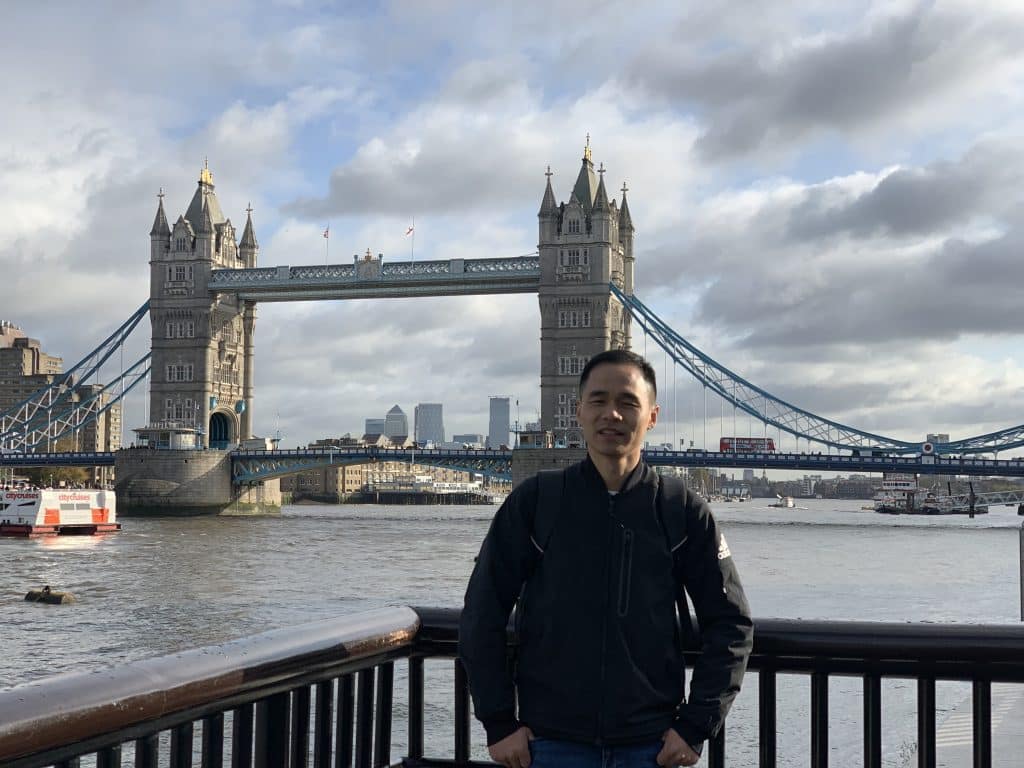
Hello Customers,
My name is Taylor Gong, I’m the product manager of ZGSM Tech. I have been in the LED lights industry for more than 13 years. Good at lighting design, street light system configuration, and bidding technical support. Feel free to contact us. I’m happy to provide you with the best service and products.
Email: [email protected] | WhatsApp: +8615068758483

